#Soviet people
Explore tagged Tumblr posts
Text
" It’s important to understand that the Soviet Union achieved collapse-preparedness inadvertently, and not because of the success of some crash program. Economic collapse has a way of turning economic negatives into positives. The last thing we want is a perfectly functioning, growing, prosperous economy that suddenly collapses one day, and leaves everybody in the lurch. It is not necessary for us to embrace the tenets of command economy and central planning to match the Soviet lackluster performance in this area. We have our own methods, that are working almost as well. I call them “boondoggles.” They are solutions to problems that cause more problems than they solve.
Just look around you, and you will see boondoggles sprouting up everywhere, in every field of endeavor: we have military boondoggles like Iraq, financial boondoggles like the doomed retirement system, medical boondoggles like private health insurance, legal boondoggles like the intellectual property system. The combined weight of all these boondoggles is slowly but surely pushing us all down. If it pushes us down far enough, then economic collapse, when it arrives, will be like falling out of a ground floor window. We just have to help this process along, or at least not interfere with it. So if somebody comes to you and says “I want to make a boondoggle that runs on hydrogen” – by all means encourage him! It’s not as good as a boondoggle that burns money directly, but it’s a step in the right direction. "
Dmitry Orlov - Closing the Collapse Gap (2006)
#Dmitry Orlov#Closing the Collapse Gap#2006#USA#USSR#Soviet Union#Cold War#optimism#economics#economy#Soviet people#United States of America#Russia#20th century#superpowers#progress#growth#employment#world domination#bankruptcy#space race#arms race#Mutual Assured Destruction#technology#ideology#money#consumerism#social cohesion#government#transportation
4 notes
·
View notes
Text
Love the contrast between the Americans’ “Apollo” and the Soviets’ “Sputnik.” You got the Americans naming their rocket after a Greek god trying to communicate the grandness and importance of this rocket. And you got the Soviets naming their rocket “fellow traveler.” Like a friend you go on an adventure with together. This rocket is our little friend lol
#i think its cute#they took the mars rover approach#humanizing the space craft making it cute making us (me) project emotions onto it#the soviets also used imagery of laika in propaganda a lot#which is pretty fucked up imo#but if i grew up in the soviet union that shit wouldve definetly worked on me lmao#the narrative of a heroic little dog going to space and being honored by the whole country#as cruely wrong as it is its very appealing#the soviets knew what they were doing man they didnt reveal how laika really died until like. the 2000s#bc they knew people really cared about that dog#they liked the narrative around her
91K notes
·
View notes
Text
Which adaptation of Sherlock Holmes is the most queer?
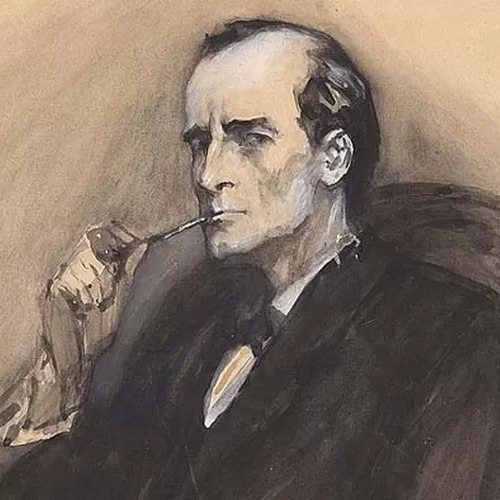
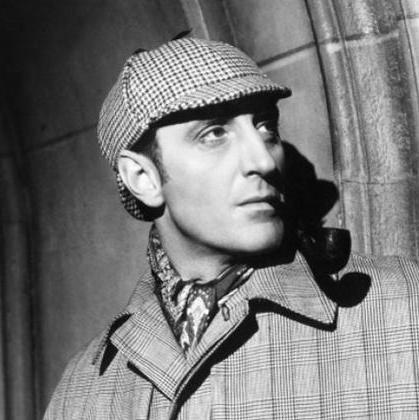
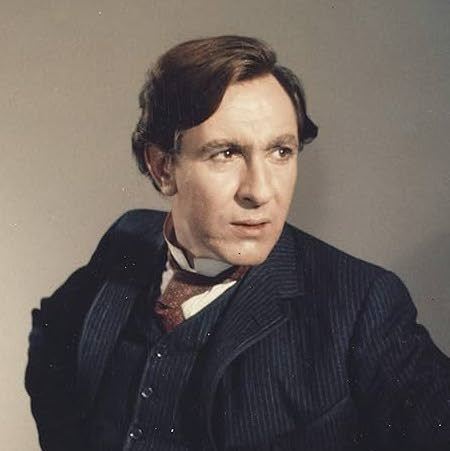
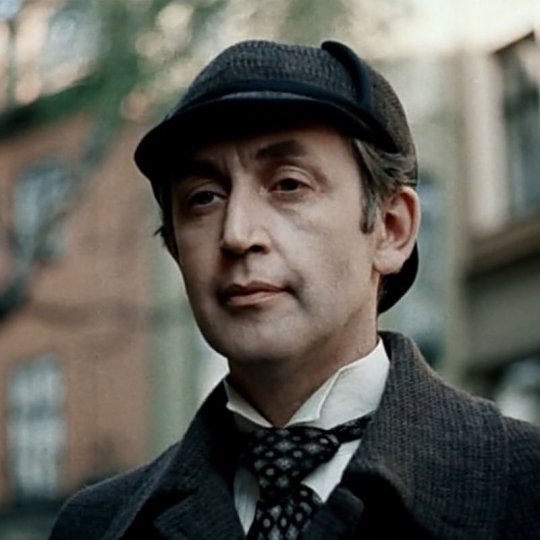
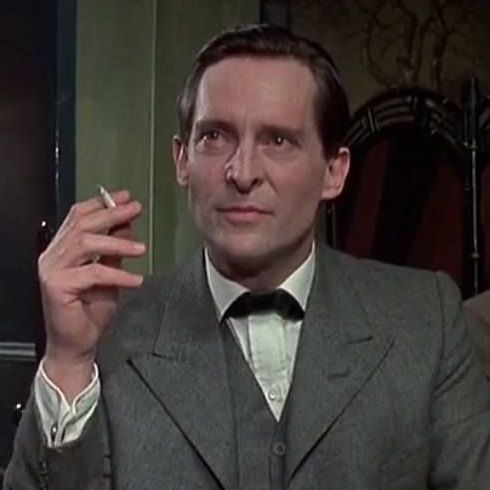
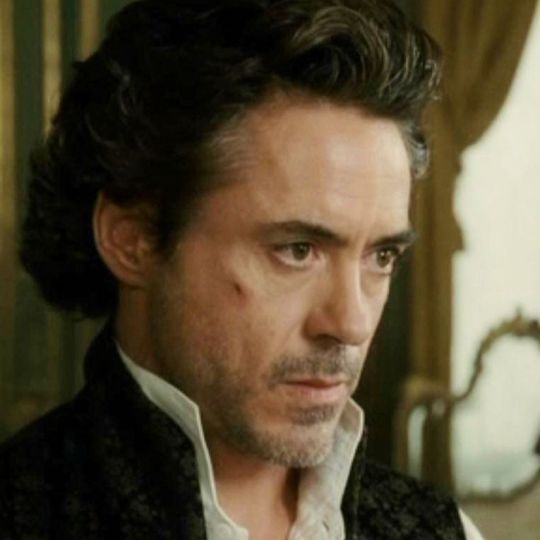

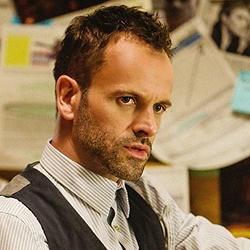
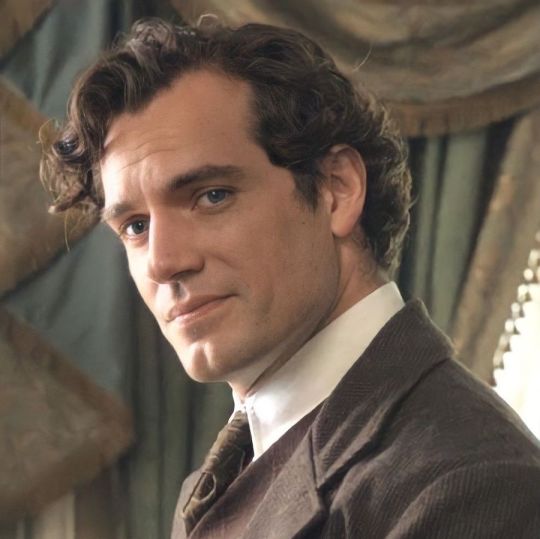
*not including House M.D. because it's not really an adaptation, or any overtly queer pastiches like My Dearest Holmes or The Adventure of the Furtive Festivity because that's not really a fair contest
#I'm on a sherlock holmes kick at the moment and this feels justifiable#because a lot of people in the original sherlock poll said 'it depends on the adaptation' and that's true. so which is the queerest?#you can interpret this as the representation of sherlock's sexuality (ace or gay or both or whatever) or just the overall vibes#imo there is no one right answer but there are few wrong answers#also I'm sure I'm missing some but he's literally the most commonly adapted character ever. I had to draw a line somewhere#sherlock holmes#arthur conan doyle#basil rathbone#the private life of sherlock holmes#robert stevens#soviet sherlock holmes#granada holmes#jeremy brett#sherlock holmes 2009#robert downey jr#bbc sherlock#benedict cumberbatch#cbs elementary#elementary sherlock#jonny lee miller#enola holmes#henry cavill#johnlock
797 notes
·
View notes
Text
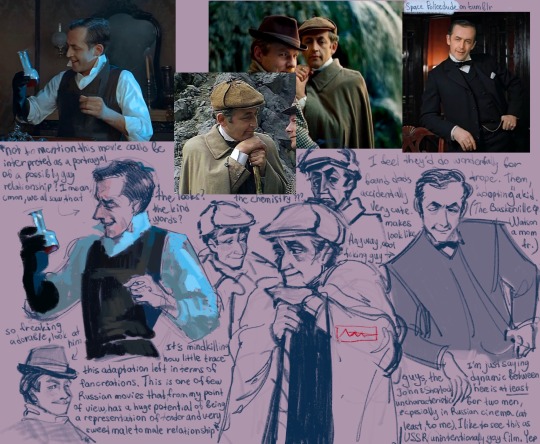
Dont mind the tiny text, im just yapping about how good this show is.
P.S. that smexy blue lighting throughout the series makes all the shirts look porcelain and ethereal, im in love
#sherlock holmes#soviet sherlock holmes#sherlock holmes x doctor watson#soviet johnlock#i guess#fanart#drawing#sketch#doodle#art#john watson#vasily livanov sherlock#vitaliy solomin#im genuinely fond of gay people#Spotify
698 notes
·
View notes
Text
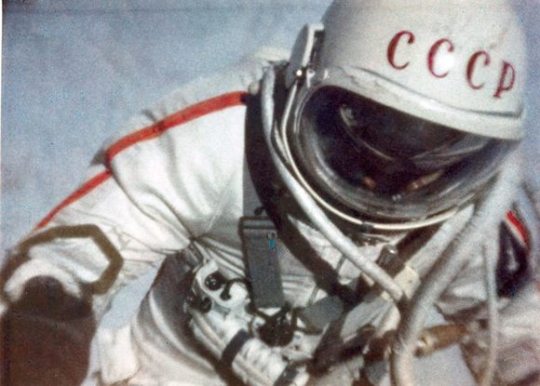
Today is the 59th anniversary of Aleksei Leonov's historic first-ever space walk. He performed it on March 18, 1965.
#i bow to people not scared to touch the unknown#space#cosmonauts#soviet#russia#ussr#1960s#soviet space program
714 notes
·
View notes
Note
Your art style is very unique it reminds me of professional artist that draws old children stories
What inspired you ?
Thank you so much 😭😭😭 Im honestly very surprised whenever someone says I have any form of a style in what I do, because, personally, I think I am a bit all over the place (which is normal since Im still trying a lot of things out for myself)
First of all, I'm very inspired by Brecht Evens, especially the way he works with color and is capable of showing different light environments through it.


My brain chemistry was also forever changed by the way over the Garden wall artists went about depiction of creepy cartoony stuff.


Also, I've been going though a process of re-evaluating soviet art for the last couple of years. I absolutely HATED it as I child but I had to revisit it for one of my Uni researches and there are actually a lot of fun examples of work with color and shapes there????





#the love hate relationship between me and soviet art is actually insane#I feel like I have somewhere around 30 different opinions about it and they all are polarly different#even here#I like the book I photographed for this post a lot#but it made me groan twice while I was taking these photos#at the same time the fact that soviet artists did fun stuff like this at a time period when censure was so aggressive#that there was a year when only TWO movies were filmed in the WHOLE union#is weirdly inspiring#like....hellish and scary things happen but people persist...art persists too
148 notes
·
View notes
Text
Chapter 4: Executed Jews
By Dara Horn, excerpted from People Love Dead Jews
ALA ZUSKIN PERELMAN AND I HAD BEEN IN TOUCH ONLINE before I finally met her in person, and I still cannot quite believe she exists. Years ago, I wrote a novel about Marc Chagall and the Yiddish-language artists whom he once knew in Russia, all of whom were eventually murdered by the Soviet regime. While researching the novel, I found myself sucked into the bizarre story of these people's exploitation and destruction: how the Soviet Union first welcomed these artists as exemplars of universal human ideals, then used them for its own purposes, and finally executed them. I named my main character after the executed Yiddish actor Benjamin Zuskin, a comic performer known for playing fools. After the book came out, I heard from Ala in an email written in halting English: "I am Benjamin Zuskin's daughter." That winter I was speaking at a literary conference in Israel, where Ala lived, and she and I arranged to meet. It was like meeting a character from a book.
My hosts had generously put me up with other writers in a beautiful stone house in Jerusalem. We were there during Hanukkah, the celebration of Jewish independence. On the first night of the holiday, I walked to Jerusalem's Old City and watched as people lit enormous Hanukkah torches at the Western Wall. I thought of my home in New Jersey, where in school growing up I sang fake English Hanukkah songs created by American music education companies at school Christmas concerts, with lyrics describing Hanukkah as being about "joy and peace and love." Joy and peace and love describe Hanukkah, a commemoration of an underdog military victory over a powerful empire, about as well as they describe the Fourth of July. I remembered challenging a chorus teacher about one such song, and being told that I was a poor sport for disliking joy and peace and love. (Imagine a "Christmas song" with lyrics celebrating Christmas, the holiday of freedom. Doesn't everyone like freedom? What pedant would reject such a song?) I sang those words in front of hundreds of people to satisfy my neighbors that my tradition was universal — meaning, just like theirs. The night before meeting Ala, I walked back to the house through the dense stone streets of the Old City's Jewish Quarter, where every home had a glass case by its door, displaying the holiday's oil lamps. It was strange to see those hundreds of glowing lights. They were like a shining announcement that this night of celebration was shared by all these strangers around me, that it was universal. The experience was so unfamiliar that I didn't know what to make of it.
The next morning, Ala knocked on the door of the stone house and sat down in its living room, with its view of the Old City. She was a small dark-haired woman whose perfect posture showed a firmness that belied her age. She looked at me and said in Hebrew, "I feel as if you knew my father, like you understood what he went through. How did you know?"
The answer to that question goes back several thousand years.
~~~~~~~~~~~~~~~~~~~~~~~~
The teenage boys who participated in competitive athletics in the gymnasium in Jerusalem 2,200 years ago had their circumcisions reversed, because otherwise they wouldn't have been allowed to play. In the Hellenistic empire that had conquered Judea, sports were sacred, the entry point to being a person who mattered, the ultimate height of cool — and sports, of course, were always played in the nude. As one can imagine, ancient genital surgery of this nature was excruciating and potentially fatal. But the boys did not want to miss out.
I learned this fun fact in seventh grade, from a Hebrew school teacher who was instructing me and my pubescent classmates about the Hanukkah story — about how Hellenistic tyranny gained a foothold in ancient Judea with the help of Jews who wanted to fit in. This teacher seemed overly jazzed to talk about penises with a bunch of adolescents, and I suspected he'd made the whole thing up. At home, I decided to fact-check. I pulled a dusty old book off my parents' shelf, Volume One of Heinrich Graetz's opus History of the Jews.
In nineteenth-century academic prose, Graetz explained how the leaders of Judea demonstrated their loyalty to the occupying Hellenistic empire by building a gymnasium and recruiting teenage athletes — only to discover that "in uncovering their bodies they could immediately be recognized as Judeans. But were they to take part in the Olympian games, and expose themselves to the mockery of Greek scoffers? Even this difficulty they evaded by undergoing a painful operation, so as to disguise the fact that they were Judeans." Their Zeus-worshipping overlords were not fooled. Within a few years, the regime outlawed not only circumcision but all of Jewish religious practice, and put to death anyone who didn't comply.
Sometime after that, the Maccabees showed up. That's the part of the story we usually hear.
Those ancient Jewish teenagers were on my mind that Hanukkah when Ala came to tell me about her father's terrifying life, because I sensed that something profound united them — something that doesn't match what we're usually taught about what bigotry looks or feels like. It doesn't involve "intolerance" or "persecution," at least not at first. Instead, it looks like the Jews themselves are choosing to reject their own traditions. It is a form of weaponized shame.
Two distinct patterns of antisemitism can be identified by the Jewish holidays that celebrate triumphs over them: Purim and Hanukkah. In the Purim version of antisemitism, exemplified by the Persian genocidal decrees in the biblical Book of Esther, the goal is openly stated and unambiguous: Kill all the Jews. In the Hanukkah version of antisemitism, whose appearances range from the Spanish Inquisition to the Soviet regime, the goal is still to eliminate Jewish civilization. But in the Hanukkah version, this goal could theoretically be accomplished simply by destroying Jewish civilization, while leaving the warm, de-Jewed bodies of its former practitioners intact.
For this reason, the Hanukkah version of antisemitism often employs Jews as its agents. It requires not dead Jews but cool Jews: those willing to give up whatever specific aspect of Jewish civilization is currently uncool. Of course, Judaism has always been uncool, going back to its origins as the planet's only monotheism, featuring a bossy and unsexy invisible God. Uncoolness is pretty much Judaism's brand, which is why cool people find it so threatening — and why Jews who are willing to become cool are absolutely necessary to Hanukkah antisemitism's success. These "converted" Jews are used to demonstrate the good intentions of the regime — which of course isn't antisemitic but merely requires that its Jews publicly flush thousands of years of Jewish civilization down the toilet in exchange for the worthy prize of not being treated like dirt, or not being murdered. For a few years. Maybe.
I wish I could tell the story of Ala's father concisely, compellingly, the way everyone prefers to hear about dead Jews. I regret to say that Benjamin Zuskin wasn't minding his own business and then randomly stuffed into a gas chamber, that his thirteen-year-old daughter did not sit in a closet writing an uplifting diary about the inherent goodness of humanity, that he did not leave behind sad-but-beautiful aphorisms pondering the absence of God while conveniently letting his fellow humans off the hook. He didn't even get crucified for his beliefs. Instead, he and his fellow Soviet Jewish artists — extraordinarily intelligent, creative, talented, and empathetic adults — were played for fools, falling into a slow-motion psychological horror story brimming with suspense and twisted self-blame. They were lured into a long game of appeasing and accommodating, giving up one inch after another of who they were in order to win that grand prize of being allowed to live.
Spoiler alert: they lost.
~~~~~~~~~~~~~~~~~~~~~~~~
I was in graduate school studying Yiddish literature, itself a rich vein of discussion about such impossible choices, when I became interested in Soviet Jewish artists like Ala's father. As I dug through library collections of early-twentieth-century Yiddish works, I came across a startling number of poetry books illustrated by Marc Chagall. I wondered if Chagall had known these Yiddish writers whose works he illustrated, and it turned out that he had. One of Chagall's first jobs as a young man was as an art teacher at a Jewish orphanage near Moscow, built for children orphaned by Russia's 1919-1920 civil war pogroms. This orphanage had a rather renowned faculty, populated by famous Yiddish writers who trained these traumatized children in the healing art of creativity.
It all sounded very lovely, until I noticed something else. That Chagall's art did not rely on a Jewish language — that it had, to use that insidious phrase, "universal appeal" — allowed him a chance to succeed as an artist in the West. The rest of the faculty, like Chagall, had also spent years in western Europe before the Russian revolution, but they chose to return to Russia because of the Soviet Union's policy of endorsing Yiddish as a "national Soviet language." In the 1920s and 30s, the USSR offered unprecedented material support to Yiddish culture, paying for Yiddish-language schools, theaters, publishing houses, and more, to the extent that there were Yiddish literary critics who were salaried by the Soviet government. This support led the major Yiddish novelist Dovid Bergelson to publish his landmark 1926 essay "Three Centers," about New York, Warsaw, and Moscow as centers of Yiddish-speaking culture, asking which city offered Yiddish writers the brightest prospects. His unequivocal answer was Moscow, a choice that brought him back to Russia the following year, where many other Jewish artists joined him.
But Soviet support for Jewish culture was part of a larger plan to brainwash and coerce national minorities into submitting to the Soviet regime — and for Jews, it came at a very specific price. From the beginning, the regime eliminated anything that celebrated Jewish "nationality" that didn't suit its needs. Jews were awesome, provided they weren't practicing Jewish religion, studying traditional Jewish texts, using Hebrew, or supporting Zionism. The Soviet Union thus pioneered a versatile gaslighting slogan, which it later spread through its client states in the developing world and which remains popular today: it was not antisemitic, merely anti-Zionist. (In the process of not being antisemitic and merely being anti-Zionist, the regime managed to persecute, imprison, torture, and murder thousands of Jews.) What's left of Jewish culture once you surgically remove religious practice, traditional texts, Hebrew, and Zionism? In the Soviet Empire, one answer was Yiddish, but Yiddish was also suspect for its supposedly backwards elements. Nearly 15 percent of its words came directly from biblical and rabbinic Hebrew, so Soviet Yiddish schools and publishers, under the guise of "simplifying" spelling, implemented a new and quite literally antisemitic spelling system that eliminated those words' Near Eastern roots. Another answer was "folklore" — music, visual art, theater, and other creative work reflecting Jewish life — but of course most of that cultural material was also deeply rooted in biblical and rabbinic sources, or reflected common religious practices like Jewish holidays and customs, so that was treacherous too.
No, what the regime required were Yiddish stories that showed how horrible traditional Jewish practice was, stories in which happy, enlightened Yiddish-speaking heroes rejected both religion and Zionism (which, aside from its modern political form, is also a fundamental feature of ancient Jewish texts and prayers traditionally recited at least three times daily). This de-Jewing process is clear from the repertoire of the government-sponsored Moscow State Yiddish Theater, which could only present or adapt Yiddish plays that denounced traditional Judaism as backward, bourgeois, corrupt, or even more explicitly — as in the many productions involving ghosts or graveyard scenes — as dead. As its actors would be, soon enough.
The Soviet Union's destruction of Jewish culture commenced, in a calculated move, with Jews positioned as the destroyers. It began with the Yevsektsiya, committees of Jewish Bolsheviks whose paid government jobs from 1918 through 1930 were to persecute, imprison, and occasionally murder Jews who participated in religious or Zionist institutions — categories that included everything from synagogues to sports clubs, all of which were shut down and their leaders either exiled or "purged." This went on, of course, until the regime purged the Yevsektsiya members themselves.
The pattern repeated in the 1940s. As sordid as the Yeveksiya chapter was, I found myself more intrigued by the undoing of the Jewish Antifascist Committee, a board of prominent Soviet Jewish artists and intellectuals established by Joseph Stalin in 1942 to drum up financial support from Jews overseas for the Soviet war effort. Two of the more prominent names on the JAC's roster of talent were Solomon Mikhoels, the director of the Moscow State Yiddish Theater, and Ala's father Benjamin Zuskin, the theater's leading actor. After promoting these people during the war, Stalin decided these loyal Soviet Jews were no longer useful, and charged them all with treason. He had decided that this committee he himself created was in fact a secret Zionist cabal, designed to bring down the Soviet state. Mikhoels was murdered first, in a 1948 hit staged to look like a traffic accident. Nearly all the others — Zuskin and twelve more Jewish luminaries, including the novelist Dovid Bergelson, who had proclaimed Moscow as the center of the Yiddish future — were executed by firing squad on August 1952.
Just as the regime accused these Jewish artists and intellectuals of being too "nationalist" (read: Jewish), today's long hindsight makes it strangely tempting to read this history and accuse them of not being "nationalist" enough — that is, of being so foolishly committed to the Soviet regime that they were unable to see the writing on the wall. Many works on this subject have said as much. In Stalin's Secret Pogrom, the indispensable English translation of transcripts from the JAC "trial," Russia scholar Joshua Rubenstein concludes his lengthy introduction with the following:
As for the defendants at the trial, it is not clear what they believed about the system they each served. Their lives darkly embodied the tragedy of Soviet Jewry. A combination of revolutionary commitment and naive idealism had tied them to a system they could not renounce. Whatever doubts or misgivings they had, they kept to themselves, and served the Kremlin with the required enthusiasm. They were not dissidents. They were Jewish martyrs. They were also Soviet patriots. Stalin repaid their loyalty by destroying them.
This is completely true, and also completely unfair. The tragedy — even the term seems unjust, with its implied blaming of the victim — was not that these Soviet Jews sold their souls to the devil, though many clearly did. The tragedy was that integrity was never an option in the first place.
~~~~~~~~~~~~~~~~~~~~~~~~
Ala was almost thirteen years old when her father was arrested and until that moment she was immersed in the Soviet Yiddish artistic scene. Her mother was also an actor in the Moscow State Yiddish Theater; her family lived in the same building as the murdered theater director Solomon Mikhoels, and moved in the same circles as other Jewish actors and writers. After seeing her parents perform countless times, Ala had a front-row seat to the destruction of their world. She attended Mikhoel's state funeral, heard about the arrest of the brilliant Yiddish author Der Nister from an actor friend who witnessed it from her apartment across the hall, and was present when secret police ransacked her home in conjunction with her father's arrest. In her biography, The Travels of Benjamin Zuskin, she provides for her readers what she gave me that morning in Jerusalem: an emotional recounting, with the benefit of hindsight, of what it was really like to live through the Soviet Jewish nightmare.
It's as close as we can get, anyway. Her father Benjamin Zuskin's own thoughts on the topic are available only from state interrogations extracted under unknown tortures. (One typical interrogation document from his three and a half years in the notorious Lubyanka Prison announces that the day's interrogation lasted four hours, but the transcript is only half a page long — leaving to the imagination how the interrogator and interrogatee may have spent their time together. Suffice it to say that another JAC detainee didn't make it to trial alive.) His years in prison began when he was arrested in December of 1948 in a Moscow hospital room, where he was being treated for chronic insomnia brought on by the murder of his boss and career-long acting partner, Mikhoels; the secret police strapped him to a gurney and carted him to prison in his hospital gown while he was still sedated.
But in order to truly appreciate the loss here, one needs to know what was lost — to return to the world of the great Yiddish writer Sholem Aleichem, the author of Benjamin Zuskin's first role on the Yiddish stage, in a play fittingly titled It's a Lie!
Benjamin Zuskin's path to the Yiddish theater and later to the Soviet firing squad began in a shtetl comparable to those immortalized in Sholem Aleichem's work. Zuskin, a child from a traditional family who was exposed to theater only through traveling Yiddish troupes and clowning relatives, experienced that world's destruction: his native Lithuanian shtetl, Ponievezh, was among the many Jewish towns forcibly evacuated during the First World War, catapulting him and hundreds of thousands of other Jewish refugees into modernity. He landed in Penza, a city with professional Russian theater and Yiddish amateur troupes. In 1920, the Moscow State Yiddish Theater opened, and by 1921, Zuskin was starring alongside Mikhoels, the theater's leading light.
In the one acting class I have ever attended, I learned only one thing: acting isn't about pretending to be someone you aren't, but rather about emotional communication. Zuskin, who not only starred in most productions but also taught in the theater's acting school, embodied the concept. His very first audition was a one-man sketch he created, consisting of nothing more than a bumbling old tailor threading a needle — without words, costumes, or props. It became so popular that he performed it to entranced crowds for years. This physical artistry animated his every role. As one critic wrote, "Even the slightest breeze and he is already air-bound."
Zuskin specialized in playing figures like the Fool in King Lear — as his daughter puts it in her book, characters who "are supposed to make you laugh, but they have an additional dimension, and they arouse poignant reflections about the cruelty of the world." Discussing his favorite roles, Zuskin once explained that "my heart is captivated particularly by the image of the person who is derided and humiliated, but who loves life, even though he encounters obstacles placed before him through no fault of his own."
The first half of Ala's book seems to recount only triumphs. The theater's repertoire in its early years was largely adopted from classic Yiddish writers like Sholem Aleichem, I. L. Peretz, and Mendele Moykher Seforim. The book's title is drawn from Zuskin's most famous role: Senderl, the Sancho Panza figure in Mendele's Don Quixote-inspired work, Travels of Benjamin the Third, about a pair of shtetl idiots who set out for the Land of Israel and wind up walking around the block. These productions were artistically inventive, brilliantly acted, and played to packed houses both at home and on tour. Travels of Benjamin the Third, in a 1928 review typical of the play's reception, was lauded by the New York Times as "one of the most originally conceived and beautifully executed evenings in the modern theater."
One of the theater's landmark productions, I. L. Peretz's surrealist masterpiece At Night in the Old Marketplace, was first performed in 1925. The play, set in a graveyard, is a kind of carnival for the graveyard's gathered ghosts. Those who come back from the dead are misfits like drunks and prostitutes, and also specific figures from shtetl life - yeshiva idlers, synagogue beadles, and the like. Leading them all is a badkhn, or wedding jester — divided in this production into two mirror-characters played by Mikhoels and Zuskin — whose repeated chorus among the living corpses is "The dead will rise!" "Within this play there was something hidden, something with an ungraspable depth," Ala writes, and then relates how after a performance in Vienna, one theatergoer came backstage to tell the director that "the play had shaken him as something that went beyond all imagination." The theatergoer was Sigmund Freud.
As Ala traces the theater's trajectory toward doom, it becomes obvious why this performance so affected Freud. The production was a zombie story about the horrifying possibility of something supposedly dead (here, Jewish civilization) coming back to life. The play was written a generation earlier as a Romantic work, but in the Moscow production, it became a means of denigrating traditional Jewish life without mourning it. That fantasy of a culture's death as something compelling and even desirable is not merely reminiscent of Freud's death drive, but also reveals the self-destructive bargain implicit in the entire Soviet-sponsored Jewish enterprise. In her book, Ala beautifully captures this tension as she explains the badkhn's role: "He sends a double message: he denies the very existence of the vanishing shadow world, and simultaneously he mocks it, as if it really does exist."
This double message was at the heart of Benjamin Zuskin's work as a comic Soviet Yiddish actor, a position that required him to mock the traditional Jewish life he came from while also pretending that his art could exist without it. "The chance to make fun of the shtetl which has become a thing of the past charmed me," he claimed early on, but later, according to his daughter, he began to privately express misgivings. The theater's decision to stage King Lear as a way of elevating itself disturbed him, suggesting as it did that the Yiddish repertoire was inferior. His own integrity came from his deep devotion to yiddishkayt, a sense of essential and enduring Jewishness, no matter how stripped-down that identity had become. "With the sharp sense of belonging to everything Jewish, he was tormented by the theater forsaking its expression of this belonging," his daughter writes. Even so, "no, he could not allow himself to oppose the Soviet regime even in his thoughts, the regime that gave him his own theater, but 'the heart and the wit do not meet.'"
In Ala's memory, her father differed from his director, partner, and occasional rival, Mikhoels, in his complete disinterest in politics. Mikhoels was a public figure as well as performer, and his leadership of the Jewish Antifascist Committee, while no more voluntary than any public act in a totalitarian state, was a role he played with gusto, traveling to America in 1943 and speaking to thousands of American Jews to raise money for the Red Army in their battle against the Nazis. Zuskin, on the other hand, was on the JAC roster, but seems to have continued playing the fool. According to both his daughter and his trial testimony, his role in the JAC was almost identical to his role on a Moscow municipal council, limited to playing chess in the back of the room during meetings.
In Jerusalem, Ala told me that her father was "a pure soul." "He had no interest in politics, only in his art," she said, describing his acting style as both classic and contemporary, praised by critics for its timeless qualities that are still evident today in his film work. But his talent was the most nuanced and sophisticated thing about him. Offstage, he was, as she put it in Hebrew, a "tam" — a biblical term sometimes translated as fool or simpleton, but which really means an innocent. (It is the first adjective used to describe the title character in the Book of Job.) It is true that in trial transcripts, Zuskin comes out looking better than many of his co-defendants by playing dumb instead of pointing fingers. But was this ignorance, or a wise acceptance of the futility of trying to save his skin? As King Lear's Fool put it, "They'll have me whipp'd for speaking true; thou'lt have me whipp'd for holding my peace." Reflecting on her father's role as a fool named Pinia in a popular film, Ala writes in her book, "When I imagine the moment when my father heard his death sentence, I see Pinia in close-up . . . his shoulders slumped, despair in his appearance. I hear the tone that cannot be imitated in his last line in the film — and perhaps also the last line in his life? — 'I don't understand anything.'"
Yet it is clear that Zuskin deeply understood how impossible his situation was. In one of the book's more disturbing moments, Ala describes him rehearsing for one of his landmark roles, that of the comic actor Hotsmakh in Sholem Aleichem's Wandering Stars, a work whose subject is the Yiddish theater. He had played the role before, but this production was going up in the wake of Mikhoel's murder. Zuskin was already among the hunted, and he knew it. As Ala writes:
One morning — already after the murder of Mikhoels — I saw my father pacing the room and memorizing the words of Hotsmakh's role. Suddenly, in a gesture revealing a hopeless anguish, Father actually threw himself at me, hugged me, pressed me to his heart, and together with me, continued to pace the room and to memorize the words of the role. That evening I saw the performance . . . "The doctors say that I need rest, air, and the sea . . . For what . . . without the theater?" [Hotsmakh asks], he winds the scarf around his neck — as though it were a noose. For my father, I think those words of Hotsmakh were like the motif of the role and — I think — of his own life.
~~~~~~~~~~~~~~~~~~~~~~~~
Describing the charges levied against Zuskin and his peers is a degrading exercise, for doing so makes it seem as though these charges are worth considering. They are not. It is at this point that Hanukkah antisemitism transformed, as it inevitably does, into Purim antisemitism. Here Ala offers what hundreds of pages of state archives can't, describing the impending horror of the noose around one's neck.
Her father stopped sleeping, began receiving anonymous threats, and saw that he was being watched. No conversation was safe. When a visitor from Poland waited near his apartment building to give him news of his older daughter Tamara (who was then living in Warsaw), Zuskin instructed the man to walk behind him while speaking to him and then to switch directions, so as to avoid notice. When the man asked Zuskin what he wanted to tell his daughter, Zuskin "approached the guest so closely that there was no space between them, and whispered in Yiddish, 'Tell her that the ground is burning beneath my feet.'" It is true that no one can know what Zuskin or any of the other defendants really believed about the Soviet system they served. It is also true — and far more devastating — that their beliefs were utterly irrelevant.
Ala and her mother were exiled to Kazakhstan after her father's arrest, and learned of his execution only when they were allowed to return to Moscow in 1955. By then, he had already been dead for three years.
In Jerusalem that morning, Ala told me, in a sudden private moment of anger and candor, that the Soviet Union's treatment of the Jews was worse than Nazi Germany's. I tried to argue, but she shut me up. Obviously the Nazi atrocities against Jews were incomparable, a fact Ala later acknowledged in a calmer mood. But over four generations, the Soviet regime forced Jews to participate in and internalize their own humiliation - and in that way, Ala suggested, they destroyed far more souls. And they never, ever, paid for it.
"They never had a Nuremberg," Ala told me that day, with a quiet fury. "They never acknowledged the evil of what they did. The Nazis were open about what they were doing, but the Soviets pretended. They lured the Jews in, they baited them with support and recognition, they used them, they tricked them, and then they killed them. It was a trap. And no one knows about it, even now. People know about the Holocaust, but not this. Even here in Israel, people don't know. How did you know?"
~~~~~~~~~~~~~~~~~~~~~~~~
That evening I went out to the Old City again, to watch the torches being lit at the Western Wall for the second night of Hanukkah. I walked once more through the Jewish Quarter, where the oil lamps, now each bearing one additional flame, were displayed outside every home, following the tradition to publicize the Hanukkah miracle — not merely the legendary long-lasting oil, but the miracle of military and spiritual victory over a coercive empire, the freedom to be uncool, the freedom not to pretend. Somewhere nearby, deep underground, lay the ruins of the gymnasium where de-circumcised Jewish boys once performed naked before approving crowds, stripped of their integrity and left with their private pain. I thought of Benjamin Zuskin performing as the dead wedding jester, proclaiming, "The dead will rise!" and then performing again in a "superior" play, as King Lear's Fool. I thought of the ground burning beneath his feet. I thought of his daughter, Ala, now an old woman, walking through Jerusalem.
I am not a sentimental person. As I returned to the stone house that night, along the streets lit by oil lamps, I was surprised to find myself crying.
#People Love Dead Jews#Dara Horn#Soviet Jewry#Soviet antisemitism#antizionism is not antisemitism#jumblr
343 notes
·
View notes
Text
I was talking with a gaming friend of mine about Leftist spaces becoming increasingly more antisemitic and hostile and the following exchange was too good.
Friend: Yeah, I'm seeing self identified Leftists that specify they're Marxists spout antisemitic shit.
Me: Well that's because they're likely MLs.
Friend: MLs?
Me: Marxist-Leninists.
Friend: I still don't follow.
Me: Tankies. MLs are Marxists who believe in Soviet era Marxism and are the authoritarian Left. Which means they're just tankies with more words. Hell, most Leftist ideology nowadays in those spaces is just some form of Soviet style Marxism/Communism with a different coat of paint.
Friend: Wait...wait... wait...So they're just using different labels to hide their authoritarian and fascist beliefs?
Me: And their antisemitism, don't forget that.
Friend: I'm going to make a meme real quick.
Friend:

Me: Hold on. I need to make one for you then.
Me:

Friend: Omg...that's so good.
Friend: You're going to put this on jumblr aren't you?
Me: Yeeeeeep.
So many Leftist spaces are just some form of Soviet Marxist spaces and are not welcoming to other forms of Leftist ideology like Democratic Socialism, Utopian Socialism, and so on (a lot of no true Scotsman fallacy in these spaces). Which, IMO, is why there's so much antisemitism that has risen from the deep like a sea monster. It's always been there, lurking in the depths of these dominant ideologies. Now that it's popular to be (((anti-Zionist))) the old antisemitic rhetoric from the Soviet days is front and center. At this point in time if I meet a Leftist that self identifies as a Marxist I know I have a high chance to be insulted, at the least, and hatecrimed, at the worst.
#jumblr#leftist antisemitism#Leftist antisemitism is Tankie antisemitism which is just Soviet era antisemitic conspiracy and rhetoric#Leftist spaces are typically overrun with Tankies persuading people to their ideals and appealing to them with jargon
354 notes
·
View notes
Text
look, i love the the concept of house horror as much as everyone else on tumblr. but i can’t help but to think that it’s so… western-centric. what about all the post-soviet people who grew up and lived and died in apartment blocks. these places are haunted as fuck. the amount of trauma is immeasurable and so much can be done with this
#not everyone lives in a house yk#maybe it’s an invitation for us to start making our own content#house of leaves#skinamarink#myhouse.wad#the haunting of hill house#this house has people in it#eastern europe#post soviet#haunted places#psychological horror#horror#trauma#traumacore#personal#apartment buildings#apartment living#vent post#vent
178 notes
·
View notes
Text

" No god!" - vintage Soviet Poster ☭
#marxism#socialism#communism#history#politics#religion#atheist#atheism#design#art#vintage#vintage art#poster#propaganda#soviet art#soviet aesthetic#soviet union#sovietwave#space#science#proletariat#liberation#christianity#islam#orthodox christianity#people#historical#russia#ussr#cold war
358 notes
·
View notes
Text

{2024} /anˈsɛstr(ə)l/
#gif#animation#anna malina#artists on tumblr#black and white#laser prints#marching ants#gimp#selection tool animation#portraits#moon#people#women#soviet cinema#ukrainian cinema#appropriated footage#2024#braids#hair#paper collage#digital collage#collage#photoshop
122 notes
·
View notes
Text


Iryna Hurvych, {1972} Ой, там на товчку, на базарі жінки чоловіків продавали (How Wives Sold Husbands)
#film#gif#iryna hurvych#Ой там на товчку на базарі жінки чоловіків продавали#how wives sold husbands#1972#female filmmakers#animation#short film#soviet animation#ukraine#soviet union#colour#people#1970s#animals#folk art
176 notes
·
View notes
Text

see you soon, laika
#danny phantom#vlad plasmius#vlad masters#danny phantom fanart#I was gonna put a whole disclaimer in the post abt how this piece has nothing to do with the russian vlad hc#and how I would prefer if people didn't interpret it as such#but it would ruin the aesthetic so for those who read the tags:#to me Vlad's mother was a Czech woman who ran from the soviets to america#I wrote Laika's name in cyrillic because it felt more meaningful to me with that context#I was also inspired by soviet post cards and propaganda posters for this reason#it does have meaning but doesn't necessarily mean the character depicted is russian#thank you#this isn't hate or anything I just don't want to be misinterpreted#love and peace always <3
591 notes
·
View notes
Text
Some people on the left in the USA need to go and read about the McCarthy Witch Trials which we all objectively know we're bad and wrong and then take a good fucking look at how they treat jews and people they dont like because it's a fucking 1:1 mapping of identicality when you start breaking down the behaviours
#antisemitism#literally anyone who doesnt agree is a nasty zionist but jews can prove their worth and that they are good#if they throw other people under the bus. doesnt matter if theyre zionist or not#the radical left expect blood to be sacrificed to them in the form of new targets#i say radical left but scarily the majority of the vocal ledt have now progressed to radicalised#and radicalisation is never good#it's not progressive; its not healthy; its not useful#but somehow its become something to brag about#you're not radical; you've just removed yourself from rewlisty where you could have made a difference#so you can be in fantasy land and pretend you're a visionary when ifact youre simply a soviet era bigot and a personality free zone
60 notes
·
View notes
Text

not made for the heat
#am#aminov#tactical gear#lmg#pkm baybeeeeeeeeeeeeeeeeeeeeeee#again greetings from beautiful angola#soviet#art#people use that tag fr on cod no carp#my art
112 notes
·
View notes



